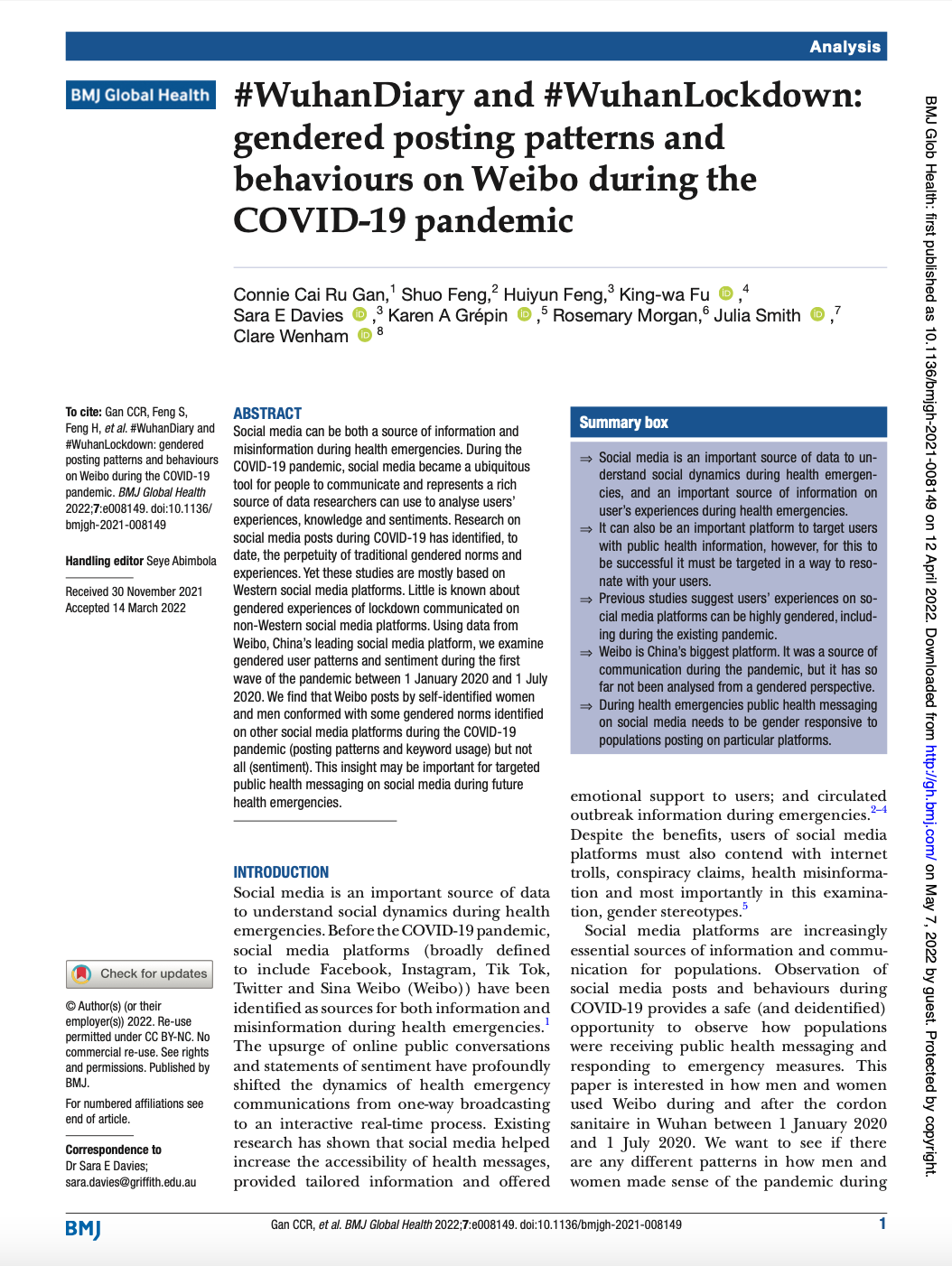Abstract
Social media can be both a source of information and misinformation during health emergencies. During the COVID-19 pandemic, social media became a ubiquitous tool for people to communicate and represents a rich source of data researchers can use to analyse users’ experiences, knowledge and sentiments. Research on social media posts during COVID-19 has identified, to date, the perpetuity of traditional gendered norms and experiences. Yet these studies are mostly based on Western social media platforms. Little is known about gendered experiences of lockdown communicated on non-Western social media platforms. Using data from Weibo, China’s leading social media platform, we examine gendered user patterns and sentiment during the first wave of the pandemic between 1 January 2020 and 1 July 2020. We find that Weibo posts by self-identified women and men conformed with some gendered norms identified on other social media platforms during the COVID-19 pandemic (posting patterns and keyword usage) but not all (sentiment). This insight may be important for targeted public health messaging on social media during future health emergencies.
Gan CCR, Feng S, Feng H, et al, #WuhanDiary and #WuhanLockdown: gendered posting patterns and behaviours on Weibo during the COVID-19 pandemic, BMJ Global Health 2022;7:e008149.






